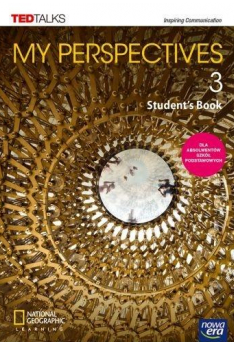II liceum
Język angielski
Lista zadań Strona 86
Strona 86
- Strona 4
- Strona 5
- Strona 6
- Strona 7
- Strona 8
- Strona 9
- Strona 10
- Strona 11
- Strona 13
- Strona 14
- Strona 15
- Strona 16
- Strona 17
- Strona 18
- Strona 19
- Strona 20
- Strona 21
- Strona 22
- Strona 23
- Strona 25
- Strona 27
- Strona 29
- Strona 30
- Strona 31
- Strona 32
- Strona 34
- Strona 35
- Strona 36
- Strona 37
- Strona 38
- Strona 39
- Strona 40
- Strona 41
- Strona 43
- Strona 45
- Strona 47
- Strona 48
- Strona 49
- Strona 50
- Strona 51
- Strona 52
- Strona 53
- Strona 54
- Strona 55
- Strona 56
- Strona 57
- Strona 59
- Strona 61
- Strona 63
- Strona 64
- Strona 65
- Strona 66
- Strona 68
- Strona 69
- Strona 70
- Strona 71
- Strona 72
- Strona 73
- Strona 74
- Strona 75
- Strona 77
- Strona 79
- Strona 81
- Strona 82
- Strona 83
- Strona 84
- Strona 87
- Strona 88
- Strona 89
- Strona 90
- Strona 91
- Strona 93
- Strona 95
- Strona 97
- Strona 98
- Strona 99
- Strona 100
- Strona 102
- Strona 103
- Strona 104
- Strona 105
- Strona 106
- Strona 107
- Strona 108
- Strona 109
- Strona 111
- Strona 113
- Strona 115
- Strona 116
- Strona 117
- Strona 118
- Strona 119
- Strona 120
- Strona 121
- Strona 122
- Strona 123
- Strona 124
- Strona 125
- Strona 127
- Strona 129
- Strona 131
- Strona 132
- Strona 133
- Strona 134
- Strona 135
- Strona 136
- Strona 137
- Strona 138
- Strona 139
- Strona 140
- Strona 141
- Strona 142
- Strona 143
- Strona 145
- Strona 147
- Strona 148
- Strona 149
1
Look at the Grammar box. Match the structures (1-3) with the uses (a–c).1 past simple2 used to, would, past simple3 used to or past simplea to describe a past state over a period of timeb to describe individual past events and situationsc to describe a habit or regular action in the past
2
Read about Grand Tours. Complete the sentences with the verbs in brackets. Where possible, use would or used to. Otherwise, use the past simple.Humans have always been travellers, moving out of Africa to all parts of the world in search of space, food, and resources. But actually, the idea of guided tourism for leisure and education (1)... (not/start) until the 17th century, when the Grand Tour began to be established. Young aristocrats* from different parts of the world (2)... (enjoy) travelling for several months around important sights in Europe after they had finished university. The Tour often (3) ... (start) in the Netherlands, where the tourists (4) ... (hire) a coach, servants, and a tutor to show them the sights and teach them about what they saw. From the Netherlands, they went to Paris, where they (5) (can) take a French language course before moving on to Switzerland and then crossing the Alps to Italy. After an extensive tour of Italy, they (6) ... (go) home directly or return to the Netherlands via Austria and Germany. Those who (7) (not / have) enough of travelling would carry on south to Greece.The Grand Tour played an important role in education and in the spreading of culture. The tourists (8) ... (bring) back paintings and books that influenced artists in their own country. The Venezuelan Francisco de Miranda even saw the beginnings of the French Revolution on his Grand Tour, which led him to fight for independence for his country.
3
Work in pairs. Discuss the questions.1 Do you think anyone does Grand Tours today? How are they similar to/ different from to the Grand Tours you read about in exercise 2?2 Where would you go if you could do a Grand Tour over a few months? Why? Think about: the sights you would visitthe food you would eat. the people you would meet
